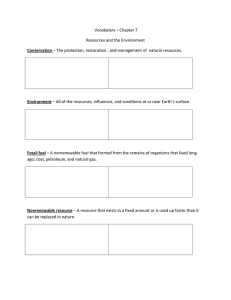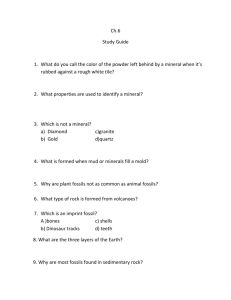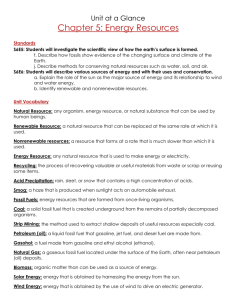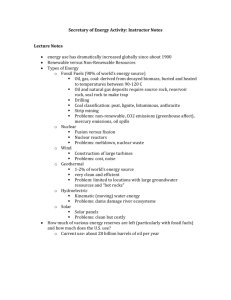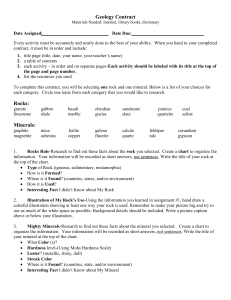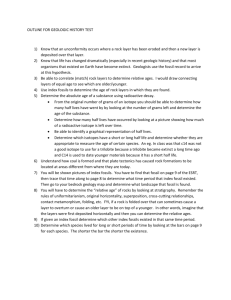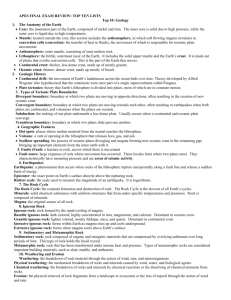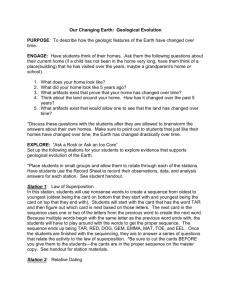Earth Science Vocabulary Weathering: process by which exposed
advertisement
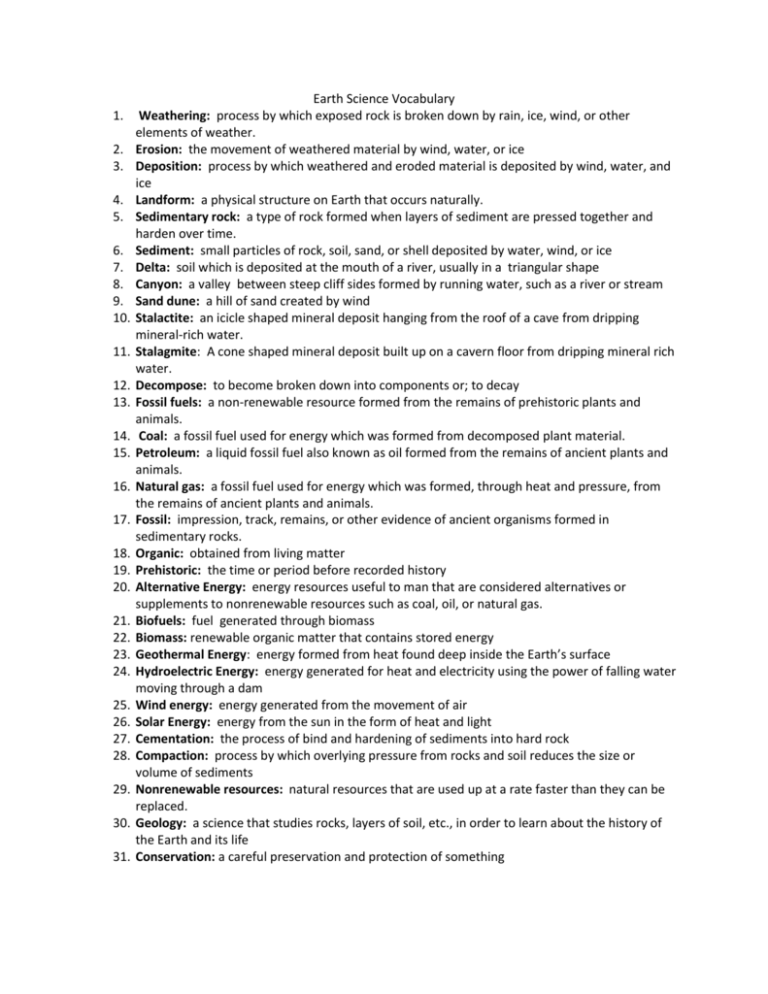
1. 2. 3. 4. 5. 6. 7. 8. 9. 10. 11. 12. 13. 14. 15. 16. 17. 18. 19. 20. 21. 22. 23. 24. 25. 26. 27. 28. 29. 30. 31. Earth Science Vocabulary Weathering: process by which exposed rock is broken down by rain, ice, wind, or other elements of weather. Erosion: the movement of weathered material by wind, water, or ice Deposition: process by which weathered and eroded material is deposited by wind, water, and ice Landform: a physical structure on Earth that occurs naturally. Sedimentary rock: a type of rock formed when layers of sediment are pressed together and harden over time. Sediment: small particles of rock, soil, sand, or shell deposited by water, wind, or ice Delta: soil which is deposited at the mouth of a river, usually in a triangular shape Canyon: a valley between steep cliff sides formed by running water, such as a river or stream Sand dune: a hill of sand created by wind Stalactite: an icicle shaped mineral deposit hanging from the roof of a cave from dripping mineral-rich water. Stalagmite: A cone shaped mineral deposit built up on a cavern floor from dripping mineral rich water. Decompose: to become broken down into components or; to decay Fossil fuels: a non-renewable resource formed from the remains of prehistoric plants and animals. Coal: a fossil fuel used for energy which was formed from decomposed plant material. Petroleum: a liquid fossil fuel also known as oil formed from the remains of ancient plants and animals. Natural gas: a fossil fuel used for energy which was formed, through heat and pressure, from the remains of ancient plants and animals. Fossil: impression, track, remains, or other evidence of ancient organisms formed in sedimentary rocks. Organic: obtained from living matter Prehistoric: the time or period before recorded history Alternative Energy: energy resources useful to man that are considered alternatives or supplements to nonrenewable resources such as coal, oil, or natural gas. Biofuels: fuel generated through biomass Biomass: renewable organic matter that contains stored energy Geothermal Energy: energy formed from heat found deep inside the Earth’s surface Hydroelectric Energy: energy generated for heat and electricity using the power of falling water moving through a dam Wind energy: energy generated from the movement of air Solar Energy: energy from the sun in the form of heat and light Cementation: the process of bind and hardening of sediments into hard rock Compaction: process by which overlying pressure from rocks and soil reduces the size or volume of sediments Nonrenewable resources: natural resources that are used up at a rate faster than they can be replaced. Geology: a science that studies rocks, layers of soil, etc., in order to learn about the history of the Earth and its life Conservation: a careful preservation and protection of something
